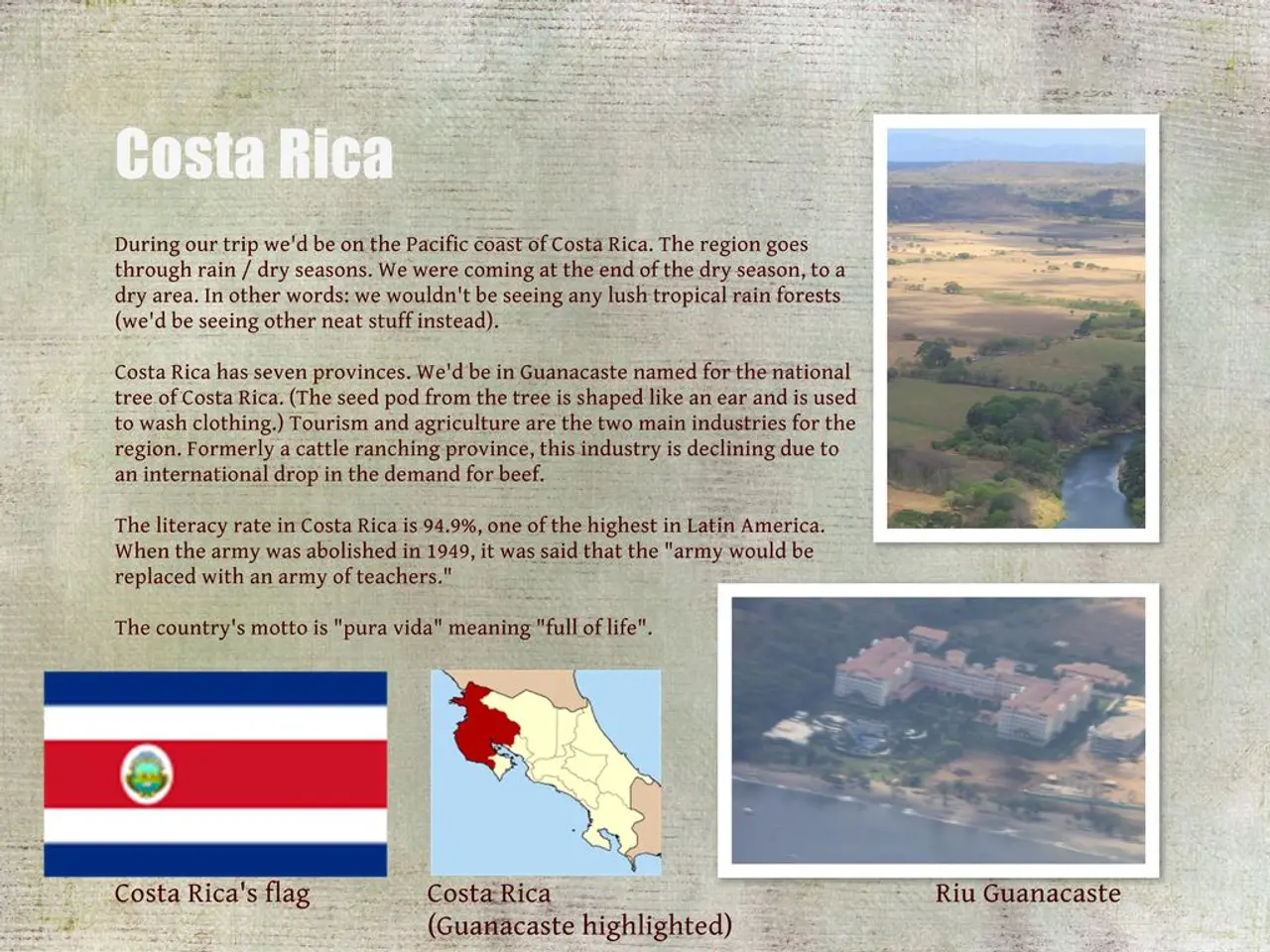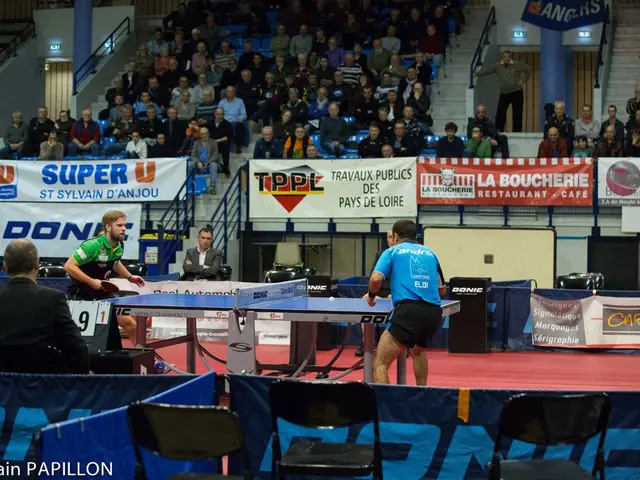Trujillo's Early Life: A Look at the Factors That Led to His Becoming a Target for Assassination Attempts
In the heart of the Caribbean, the Dominican Republic was gripped by the iron fist of Rafael Trujillo, a man born on October 24, 1891, in San Cristobal. His rise to power was marked by a series of cunning political moves and manipulations, culminating in a coup in 1930 that saw him seize control of the country.
Trujillo's regime was characterised by intense political repression, aimed at maintaining control and suppressing dissent. A vast network of informants and secret police were employed to monitor and report on the activities of citizens, creating a climate of fear. The media was heavily censored under Trujillo's rule, with only information supporting his rule being disseminated.
Despite these efforts, Trujillo's oppressive regime created a breeding ground for dissent and resistance. Key figures in this struggle included the Mirabal sisters and their husbands, who formed a nationwide anti-Trujillo movement connecting local resistance cells inspired by revolutionary successes in Cuba. They sought allies like the Catholic priest collective Acción Clero Cultural, opposing the regime, despite the Church largely supporting Trujillo until 1960.
The regime's brutality and economic domination were also major factors in fueling opposition. Trujillo monopolized much of the economy, owning land, airlines, sugar production, and other industries that represented up to three-fifths of the national GDP. Such concentrated wealth and patronage fueled grievances among Dominicans excluded from economic power.
Increasing paranoia led Trujillo to target foreign-backed plots, such as assassination attempts on Venezuelan President Rómulo Betancourt. These acts attracted condemnation by the Organization of American States and economic sanctions, combined with U.S. withdrawal of support. This international isolation weakened Trujillo’s regime and emboldened opposition.
The assassination of prominent opposition figures like the Mirabal sisters galvanized public sentiment against Trujillo’s cruelty and symbolized the broader struggle for democracy. The mounting pressure from abroad not only fueled the opposition's determination but also laid the groundwork for potential international intervention.
The international community, particularly foreign governments, began to condemn Trujillo's regime and question his human rights record. Trujillo's regime was marked by censorship, corruption, and human rights abuses, including torture, forced disappearances, and extrajudicial killings.
In summary, the opposition was driven by the regime’s brutality and economic domination, the courageous organization of resistance activists, international sanctions and loss of foreign backing, and the iconic sacrifice of dissidents. These combined forces culminated in Trujillo’s assassination in 1961 and paved the way for a democratic transition. The fall of Trujillo's regime serves as a stark reminder of the power of resistance and the importance of upholding human rights and democratic values.
[1] "The Dominican Republic: From Dictatorship to Democracy." National Endowment for Democracy. (n.d.). https://www.ned.org/countries/dominican-republic/
[2] "The Mirabal Sisters." BBC. (2011, June 20). https://www.bbc.co.uk/history/history_of_the_world/cold_war/mirabal_sisters_01.shtml
[3] "Trujillo, Rafael Leonidas." Encyclopædia Britannica. (n.d.). https://www.britannica.com/biography/Rafael-Leonidas-Trujillo
[4] "The Dominican Republic: A Modern History." Oxford University Press. (2007). https://global.oup.com/academic/product/the-dominican-republic-9780199286117?cc=us&lang=en&
[5] "The Dominican Republic: From Dictatorship to Democracy." Human Rights Watch. (n.d.). https://www.hrw.org/report/1992/06/24/dominican-republic-from-dictatorship-democracy/human-rights-abuses-under-trujillo
- Under Trujillo's rule, the Dominican Republic experienced a blend of war-and-conflicts, crime-and-justice, and politics as opposition groups, such as the Mirabal sisters and their allies, fought against the oppressive, human rights-violating regime.
- The international community, through policy-and-legislation and general-news outlets, played a significant role in condemning Trujillo's regime and applying economic sanctions, which added to the pressure that eventually led to the dictator's downfall and paved the way for democracy.








